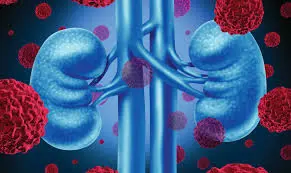- Home
- Medical news & Guidelines
- Anesthesiology
- Cardiology and CTVS
- Critical Care
- Dentistry
- Dermatology
- Diabetes and Endocrinology
- ENT
- Gastroenterology
- Medicine
- Nephrology
- Neurology
- Obstretics-Gynaecology
- Oncology
- Ophthalmology
- Orthopaedics
- Pediatrics-Neonatology
- Psychiatry
- Pulmonology
- Radiology
- Surgery
- Urology
- Laboratory Medicine
- Diet
- Nursing
- Paramedical
- Physiotherapy
- Health news
- Fact Check
- Bone Health Fact Check
- Brain Health Fact Check
- Cancer Related Fact Check
- Child Care Fact Check
- Dental and oral health fact check
- Diabetes and metabolic health fact check
- Diet and Nutrition Fact Check
- Eye and ENT Care Fact Check
- Fitness fact check
- Gut health fact check
- Heart health fact check
- Kidney health fact check
- Medical education fact check
- Men's health fact check
- Respiratory fact check
- Skin and hair care fact check
- Vaccine and Immunization fact check
- Women's health fact check
- AYUSH
- State News
- Andaman and Nicobar Islands
- Andhra Pradesh
- Arunachal Pradesh
- Assam
- Bihar
- Chandigarh
- Chattisgarh
- Dadra and Nagar Haveli
- Daman and Diu
- Delhi
- Goa
- Gujarat
- Haryana
- Himachal Pradesh
- Jammu & Kashmir
- Jharkhand
- Karnataka
- Kerala
- Ladakh
- Lakshadweep
- Madhya Pradesh
- Maharashtra
- Manipur
- Meghalaya
- Mizoram
- Nagaland
- Odisha
- Puducherry
- Punjab
- Rajasthan
- Sikkim
- Tamil Nadu
- Telangana
- Tripura
- Uttar Pradesh
- Uttrakhand
- West Bengal
- Medical Education
- Industry
Serum MCP-1 and Osteopontin May Predict Early Renal Injury in Gout: Study

According to a new research the combination of serum Monocyte Chemoattractant Protein-1 (MCP-1) and Osteopontin (OPN) has a high diagnostic value in detecting early renal injury in patients with gout.
A study was done to explore the changes in serum Monocyte chemoattractant protein-1 (MCP-1) and Osteopontin (OPN) in gout patients and their diagnostic value for early renal injury. In this research, 174 gout patients (January 2022-October 2024) were divided into the early renal injury group (50 cases) and non-early renal injury group (124 cases). Additionally, 169 healthy individuals were included as controls.
Clinical indicators such as serum creatinine, cystatin C (CysC), and GFR were recorded. MCP-1 and OPN levels were measured using ELISA. Pearson's correlation was used to analyze relationships; Logit regression was applied to identify influencing factors, and ROC curves assessed diagnostic value, with AUC comparisons via Z-test. Results: Serum MCP-1 and OPN levels were significantly higher in the gout group compared to controls (P<0.05) and further elevated in the early renal injury group (P<0.05). MCP-1 and OPN correlated positively with creatinine and CysC and negatively with GFR (P<0.05). Logit regression identified MCP-1 (OR: 2.765, 95% CI: 1.308-5.846) and OPN (OR: 3.019, 95% CI: 1.468-6.210) as independent risk factors (P<0.05).
The AUC for diagnosing early renal injury was 0.775 (MCP-1), 0.827 (OPN), and 0.938 (combined), with the combination significantly outperforming either marker alone (Z=3.075, 2.273, P<0.05). The combination of serum MCP-1 and OPN in gout patients has a higher diagnostic value for early renal injury, it is obviously higher than the individual diagnosis of each indicator, and demonstrates significant clinical implications.
Reference:
Chang H, Lv J, Zheng Y, Li D, Li Y. The Diagnostic Value of Serum MCP-1 Combined with OPN Detection for Early Renal Injury in Gout Patients. Int J Gen Med. 2025;18:1423-1429. Published 2025 Mar 11. doi:10.2147/IJGM.S508220
Dr. Shravani Dali has completed her BDS from Pravara institute of medical sciences, loni. Following which she extensively worked in the healthcare sector for 2+ years. She has been actively involved in writing blogs in field of health and wellness. Currently she is pursuing her Masters of public health-health administration from Tata institute of social sciences. She can be contacted at editorial@medicaldialogues.in.
Dr Kamal Kant Kohli-MBBS, DTCD- a chest specialist with more than 30 years of practice and a flair for writing clinical articles, Dr Kamal Kant Kohli joined Medical Dialogues as a Chief Editor of Medical News. Besides writing articles, as an editor, he proofreads and verifies all the medical content published on Medical Dialogues including those coming from journals, studies,medical conferences,guidelines etc. Email: drkohli@medicaldialogues.in. Contact no. 011-43720751


